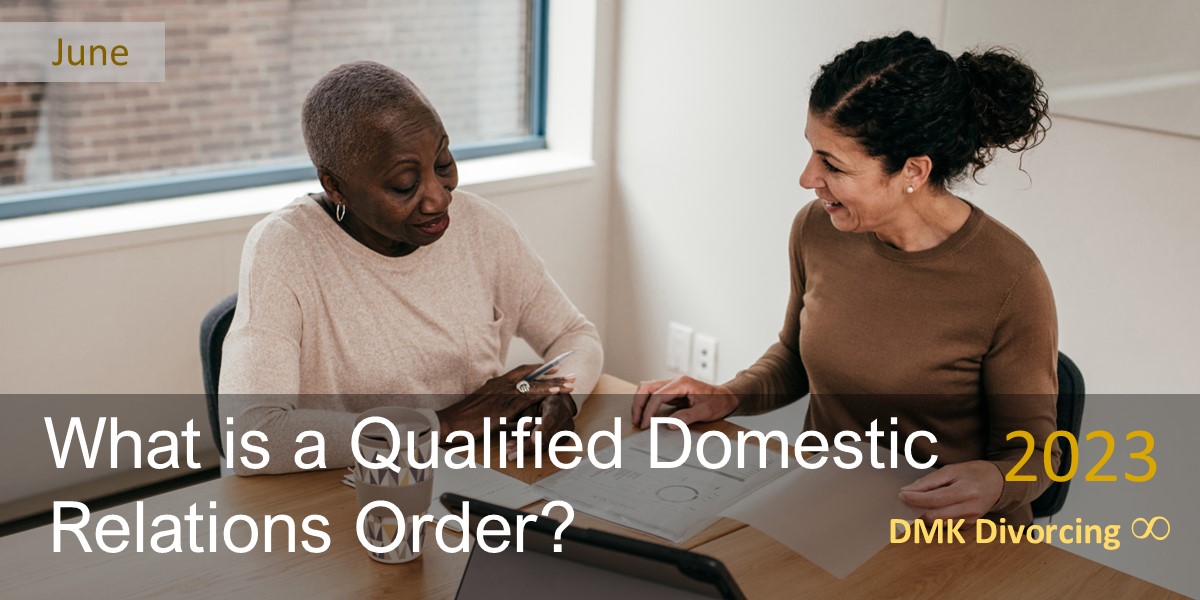As if there aren't enough regulations, legal terms and documents to understand when divorcing, we have yet another that may be worth learning if you or your spouse have one or more retirement accounts and are interested in getting divorced.
What is QDRO, and do you need it?
A QDRO (Qualified Domestic Relations Order) recognizes and outlines an alternate payee's right to receive a predetermined amount an account owner is set to receive from his/her retirement plan assets.
It can become part of a divorce decree or created and enforced as a separate order, judgement or decree. QDRO can be done after the final judgement has been established.
Alternate payees may include a spouse, former spouse, child and/or other dependent.
Why do you need one?
- While the MSA (Marital Settlement Agreement) is included in or alongside the Final Judgement of Divorce, it typically only specifies a percentage of retirement assets to be distributed to each party.
- Unless a QDRO is in place, a retirement plan administrator cannot automatically distribute the participant's funds to another party following divorce.
- It assists in a more efficient process for said distribution.
Does a QDRO apply to all retirement plans?
A QDRO is specific to 401(k)s, 403(b)s, and other qualified retirement plans which are employer-sponsored plans meeting requirements set forth by the Internal Revenue Code and the Employee Retirement Income Security Act, making them eligible for certain tax benefits. Other qualified retirement plans may include traditional pensions and profit-sharing plans.
A QDRO does not apply to IRAs which require a process referred to as "transfer incident to divorce".
Based on the state in which your divorce is processed and whether it is a Community Property State or and Equitable Distribution State, property laws may affect how a couple's assets and debts are divided and therefor the application of rules associated with retirement accounts. Consult a local, family law attorney for more details regarding how such laws can affect your case.
How does the IRS define the use of a QDRO?
According to the Internal Revenue Service (IRS), a QDRO is “a judgment, decree, or order for a retirement plan to pay child support, alimony, or marital property rights to a spouse, former spouse, child, or other dependents of a [retirement plan] participant."
For more information and to understand how a QDRO may affect you, refer to your divorce and/or tax attorney and the IRS (https://www.irs.gov/retirement-plans/plan-participant-employee/retirement-topics-qdro-qualified-domestic-relations-order).
What is ERISA as it applies to a QDRO?
A QDRO must comply with the Employee Retirement Income Security Act (ERISA) and the domestic relations laws within the state that has jurisdiction. ERISA (The Employee Retirement Income Security Act of 1974) is a federal law that sets minimum standards for most employer-sponsored retirement and health plans to provide protection for individuals in these plans.
QDRO's are only specific to pension plans and/or employee benefits subject to ERISA.
Disclaimer
The information provided by respective owner's ("we", "us" or "our) on Divorce Me Knot (referenced also as "DivorceMeKnot.com", "dmk", "DMK", "OurDMK.com", "OurDMK", "application" or "site") is for general informational purposes only and is subject to change with or without notice. All information on our site and application is provided in good faith, however we make no representation, guarantee or warranty of any kind, express or implied, regarding the accuracy, validity, adequacy, reliability, availability, or completeness of any information on the site or application.
The information in articles and all content on this site should not be considered psychological or behavioral health therapy, counseling or legal, financial, real estate, mortgage, insurance, or professional advice. It should not be used in place of professional advice from a licensed professional or credentialed expert. Providers of content on this site, herein known as "Contributors" (inclusive of, but not limited to writers, bloggers, editors, employees, developers, graphic designers, advertisers, partners, affiliates, references, experts, professionals, and site owners) are not legally liable for any misinformation, errors, or omissions. Names, details, and images may have been changed in the content of this site.
Under no circumstances should DMK and/or its Contributors have any liability to users of the site for any loss or damage incurred to users because of the use of this site or application or reliance of any information provided on the site or application. Use of the site or application and reliance on any information from the site or application is solely at the user's own risk.
For complete site disclaimers review "Disclaimers" on this site or click the link below.
Read Complete Site Disclaimers Here



 How to resolve AdBlock issue?
How to resolve AdBlock issue?